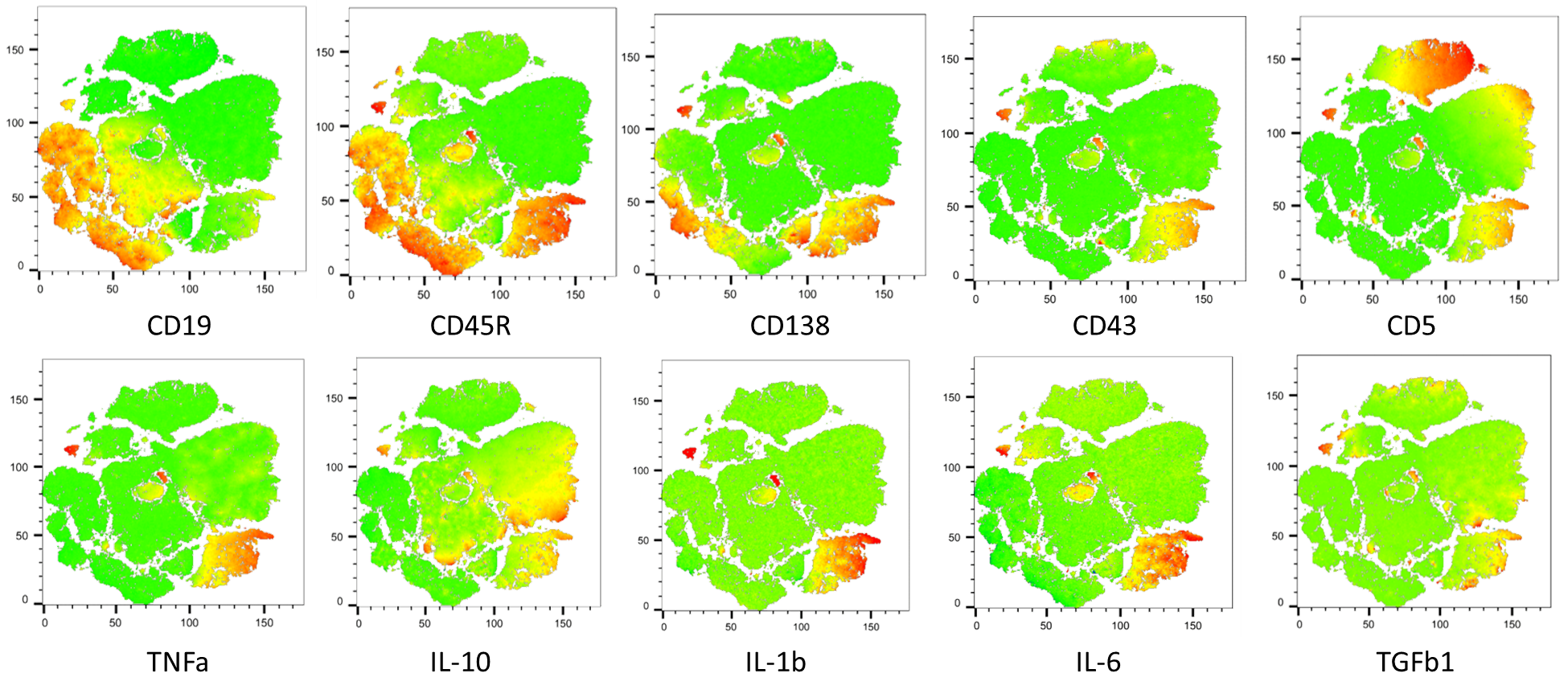Down syndrome (DS) is the most prevalent aneuploidy resulting from the triplication of human chromosome 21. Among the currently known genetic syndromes, DS represents the one most frequently associated with immune dysregulation. A reduction in B cell numbers has been reported in DS and it was found that all steps of peripheral B cell development are altered in DS, with a more severe defects during late stages of B cell development. Individuals with DS carry extra copy of the APP gene due to its presence on chromosome 21. This is the major reason why nearly all adults with DS develop Alzheimer disease (AD) pathology by the age of 40 years and are at high risk for dementia. Given their increased life expectancy compared with adults with DS in the past, AD and its complications are the leading cause of death in adults with DS. AD is associated with accumulation of activated B cells in circulation, and with infiltration of B cells into the brain parenchyma, resulting in immunoglobulin deposits around β-amyloid (Aβ) plaques. There is evidence that AD progression requires B cells, and the loss of B cells after B cell depletion treatment is sufficient to reduce Aβ plaque burden. Since the earliest descriptions of AD, several theories were postulated regarding the causes of the disease, including mutations of amyloid precursor protein (APP) and immune system dysfunction. We study the DP1Tyb mouse strain, which exhibits an extra copy of a portion of mouse chromosome 16 which represents 63% of human chromosome 21 (Hsa21)-orthologous mouse genes. In light of these evidence, we wanted to assess whether immune B cell subsets are involved in the etiology of AD in DS. B cell can be sub-divided into several subsets, some are more associated with autoreactivity and autoimmunity. Using Flow Cytometry analysis and immunohistochemistry methods, we are researching whether specific B cell sub-sets are involved in amyloid-related pathology in DS to promote therapeutic interventions that will delay the onset of cognitive decline in individuals with DS.

